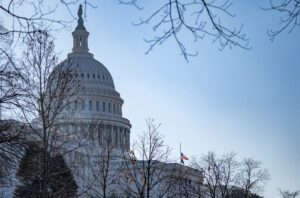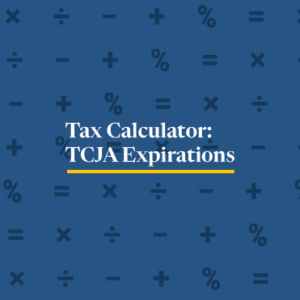Key Takeaways
- There are four principles of sound tax policy: simplicity, transparency, neutrality, and stability.
- These principles ensure taxes are effective and minimally harmful.
- Stability in the tax code is good for individuals, families, businesses, and the government.
- It means governments should avoid enacting temporary tax laws, including tax holidays, amnesties, and retroactive changes, and strive to establish stable revenue sources.
- Individuals, families, and businesses are able to make and achieve financial goals when the tax code does not shift and alter their financial plans.
- Governments can better predict revenues when tax policy remains stable.
- The Tax Cuts and Jobs Act (TCJA) of 2017 is an example of instability in the tax code.
- Certain provisions, like the reduced individual income tax rate and full expensing for certain short-lived assets, are temporary, set to expire just eight years after they were enacted.
- If these provisions are not made permanent, individuals and families could face thousands in tax increases and businesses would have to reduce investments that create jobs, increase wages, and make everyone better off.
- Financial stability is an important goal that can be drastically undermined by instability in the tax code.
Transcript
Everyone wants financial stability: in your income, your expenses, and even your taxes.
In fact, stability is one of the four key principles of sound tax policy.
When the tax code is stable and predictable, individuals, families, and businesses can set goals for the future and make plans to achieve them.
When taxes are temporary and unstable, it can create some serious problems. This is exactly what’s happening with the 2017 Tax Cuts and Jobs Act (TCJA).
The TCJA brought massive changes to our tax code. It lowered the individual income tax rate and doubled the standard deduction. It reduced the corporate income tax rate, and offered full expensing for businesses, allowing certain investments like technology, equipment, or buildings to be immediately deducted.
Some of these changes are permanent. Others, like the reduced individual income tax rate and full expensing, are temporary, set to expire just eight years after they were enacted.
These expirations will create instability for everyone. Income taxes will go up and many individuals and families will be hit with thousands of dollars more in taxes every year. This will make it harder for Americans to meet their current expenses, let alone plan to save or invest for the future.
Additionally, businesses will lose full expensing, which will reduce investments that create jobs, raise wages, and make everyone better off. Even the government will need to adapt as its revenue streams shift.
When tax policies are temporary and unstable, no one is able to make effective plans for a better future. Individuals and businesses alike deserve policies that are stable, predictable, and consistent.



